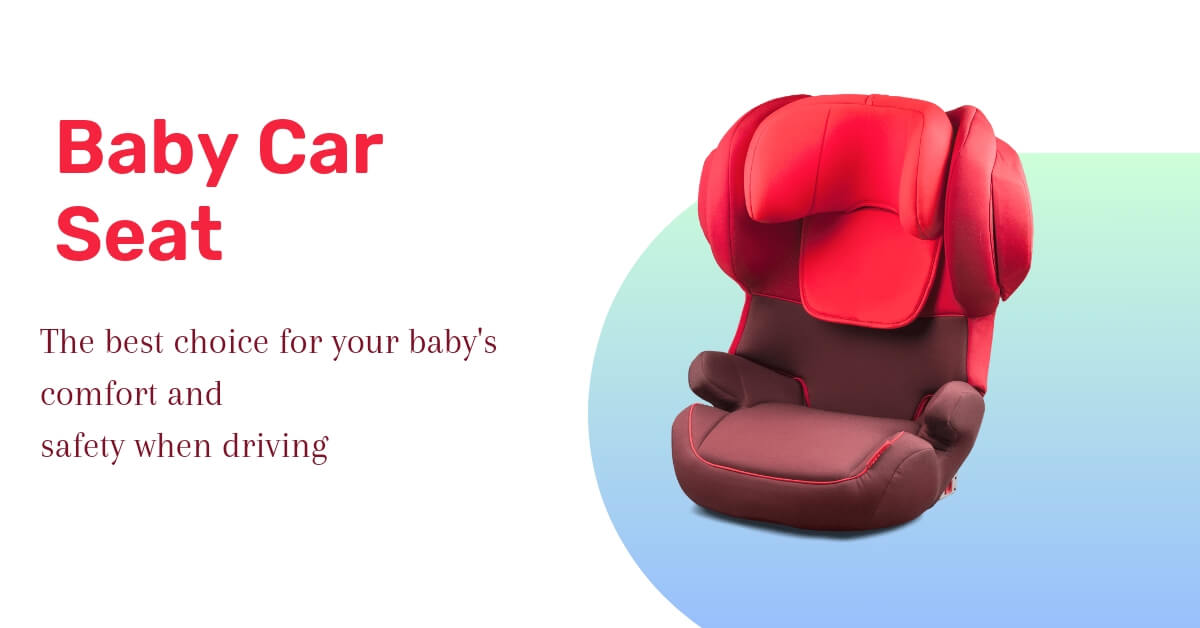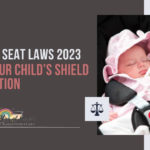It seems that Washington state car seat laws are a bit stricter than other states of the United States.
Statistical number shows that 26% of children that were killed in a car accident in Washington state were not in an integrated child seat.
WA child passenger safety also stated that A leading killer of children ages 1-13 is car crashes.
Using the right seat can reduce the risk of fatal injury by 71%.
Browse this Post
- 1 Official Washington State Car Seat Laws
- 2 Washington State Rear-Facing Car Seat Law (0-2 years)
- 3 Washington state Forward-facing Car Seat Law (2-4 years)
- 4 Washington state Child Booster Seat Laws in Washington state? (4–8 Passenger)
- 5 When Can My Child Sit in the Front Seat in Washington State? (Over 8 years)
- 6 Safety of a Child Passenger
- 7 Leaving Child in Car Law in Washington state
- 8 Taxi Car Seat Law in Washington state
- 9 Upcoming Changes To Washington State Car Seat Law
- 10 Is it Illegal to Smoke in a Car with a Child in Washington State?
Official Washington State Car Seat Laws

WA Child Passenger Safety states –
● For children not more than 2 years of age, a rear-facing car seat is compulsory.
● For children between 2-4 years old, a car seat with a harness (rear or forward facing) is a must.
● If your child is 4 years old or older but not taller than 4 feet and 9 inches, you need to use a car seat or a booster car seat.
● When the child is taller than 4 feet and 9 inches (usually around 8 to 12 years old), you can use a regular seat belt that fits him/her properly.
● Children up to 13 years old must ride in the back seat when it is practical to do so.
You can see the main law in Section 46.61.687
Washington State Rear-Facing Car Seat Law (0-2 years)
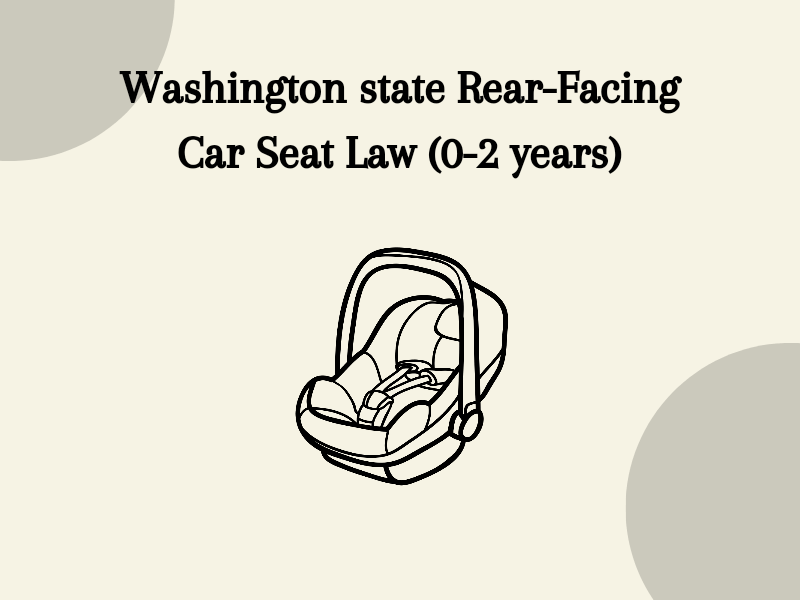
Rear-facing car seats are convertible seats or infant seats that face the back of the car.
The rear-facing position is important for the infant babies whose spinal cord is not ossified.
That means their spinal cord is not turned to bone from cartilage.
Washington law requires children under the age of 2 to travel in the rear-facing car seat.
Rear-facing seats need to be federally approved and placed in the back of the car seat.
UW Medicine also states that Children should remain in a rear-facing car safety seat as long as possible until they reach the highest weight or height allowed by their seat.
Washington state Forward-facing Car Seat Law (2-4 years)
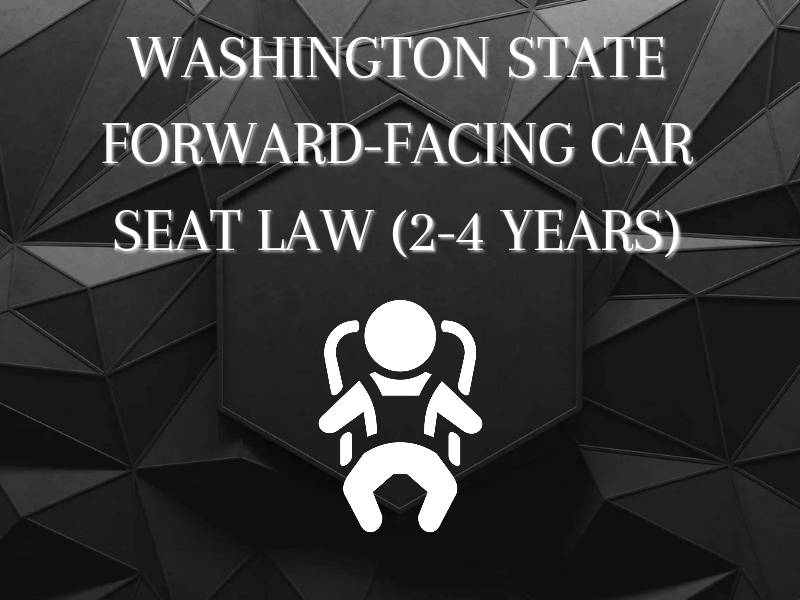
Forward-facing car seats face the front of the vehicle. When a child outgrows a rear-facing car seat, it is time to change their seat into a forward-facing car seat.
A rear-facing car is always considered safer for children under two years than a forward-facing car seat.
Washington Child restraint law requires a child between 2 and 4 years old to be seated in a car seat with a harness seat regardless of a rear or forward-facing car seat.
Washington state Child Booster Seat Laws in Washington state? (4–8 Passenger)
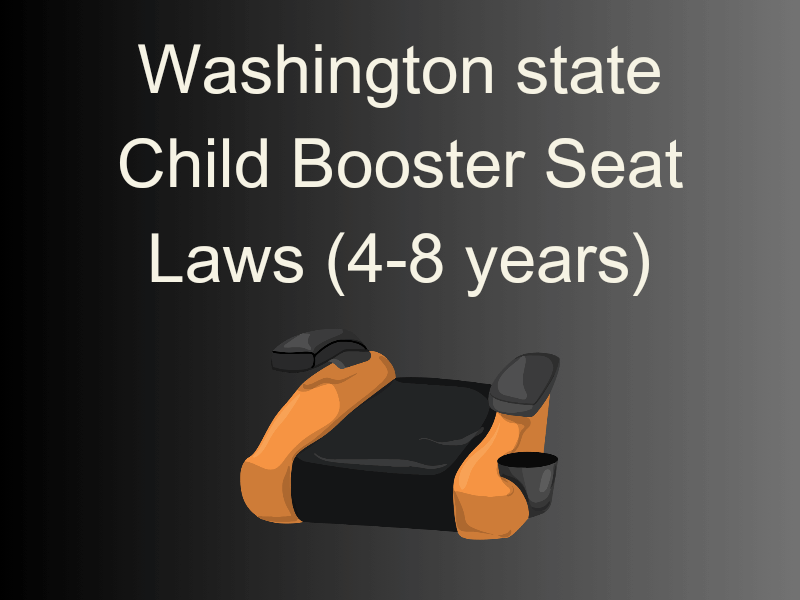
Children that are 4 and older must ride in a car or booster seat until they are 4’9″ tall.
Children more than 4’9” tall must be secured by a properly fitted seat belt (typically suitable for 8-12-year-olds).
***Age and weight recommendations can vary by manufacturer and local laws.
When Can My Child Sit in the Front Seat in Washington State? (Over 8 years)
Children younger than 13 should ride in the back seat.
When children are old enough and large enough for the vehicle seat belt to fit them properly, they need to use lap and shoulder seat belts for the best protection.
Safety of a Child Passenger

Seat belt
A child passenger cannot be fit in an adult car seat and seat belt. That’s why it is important to ensure the right car seat and proper seat belts according to the state’s law about child passenger safety.
However, you can easily determine if your child is ready to fit in a car seat belt by answering a five-question test.
These questions are –
● Does your child sit all the way back against the car seat?
● Can your child bend his knees comfortably at the edge of the car seat without slouching?
● Does the seat belt cross your child’s neck and arm?
● Does the lap belt touch their thighs as low as possible?
● Is your child able to sit in the same position the whole trip?
If the answer to any of these questions’ replies is “no,” then you should still use a booster seat for your child. If all the answers are “yes,” then they are ready to use the car seat belt.
Leaving Child in Car Law in Washington state
Leaving a child in a car can be considered a violation of law in several states of the United States.
According to Karimi Law, these kinds of works may be considered child endangerment.
The website further states that Washington State has criminalized a subset of these certain activities under Chapter 9A.42 of the Revised Code as “criminal mistreatment” or “abandonment” of children and other dependent persons such as frail elderly and vulnerable adults.
Safe Convertible Car Seat also says children less than 16 years old cannot be left alone in a motor vehicle.
Taxi Car Seat Law in Washington state
According to this resource, taxis in Washington state are not required to have car seats.
Vehicles for hire are exempt from this.
Since taxis fall in this category, they are not obliged to have a car seat for a child passenger.
There is no legal requirement to have a taxi child seat in Washington, but you should not travel with your child without a car seat.
To ensure your child a safe trip, you should arrange a car seat for your child before traveling with them in a taxi.
Read more on taxi car seat law here Baby Car Seat In Taxi.
Upcoming Changes To Washington State Car Seat Law
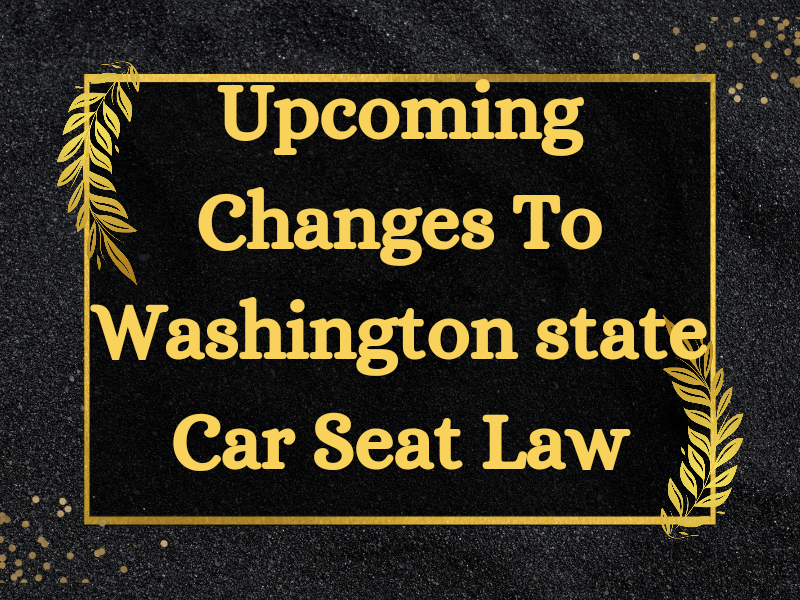
Washington state car seat laws are more extensive than the rest of the United States.
This state’s car seat law has already been updated and is effective from January 2020, as already explained above.
The new changes in law make the rules more clear and more understandable for the parents so that they can easily understand when their children are ready to transition from one type of seat to another.
We will update as soon as a new law is imposed or any amendment rolls in.
Is it Illegal to Smoke in a Car with a Child in Washington State?
In Washington, smoking with children in the car is available.
But secondhand smoke in children can lead to various illnesses like asthma and pneumonia. It can cause numerous preventable hospital admissions.
It’s a significant contributor to sudden infant death syndrome (SIDS).
Frequent exposure can increase the risk of lung cancer and heart attacks.
More Car Seat Laws
CT (Connecticut) Car Seat Laws
My name is Olivia Brown, and I’m a New York-based blogger and stay-at-home parent. Former business executive enjoying retirement and time with kids Lily and Max. On my blog, I review things for kids and offer my honest thoughts and insights to other parents who may be having the same or similar experiences.

